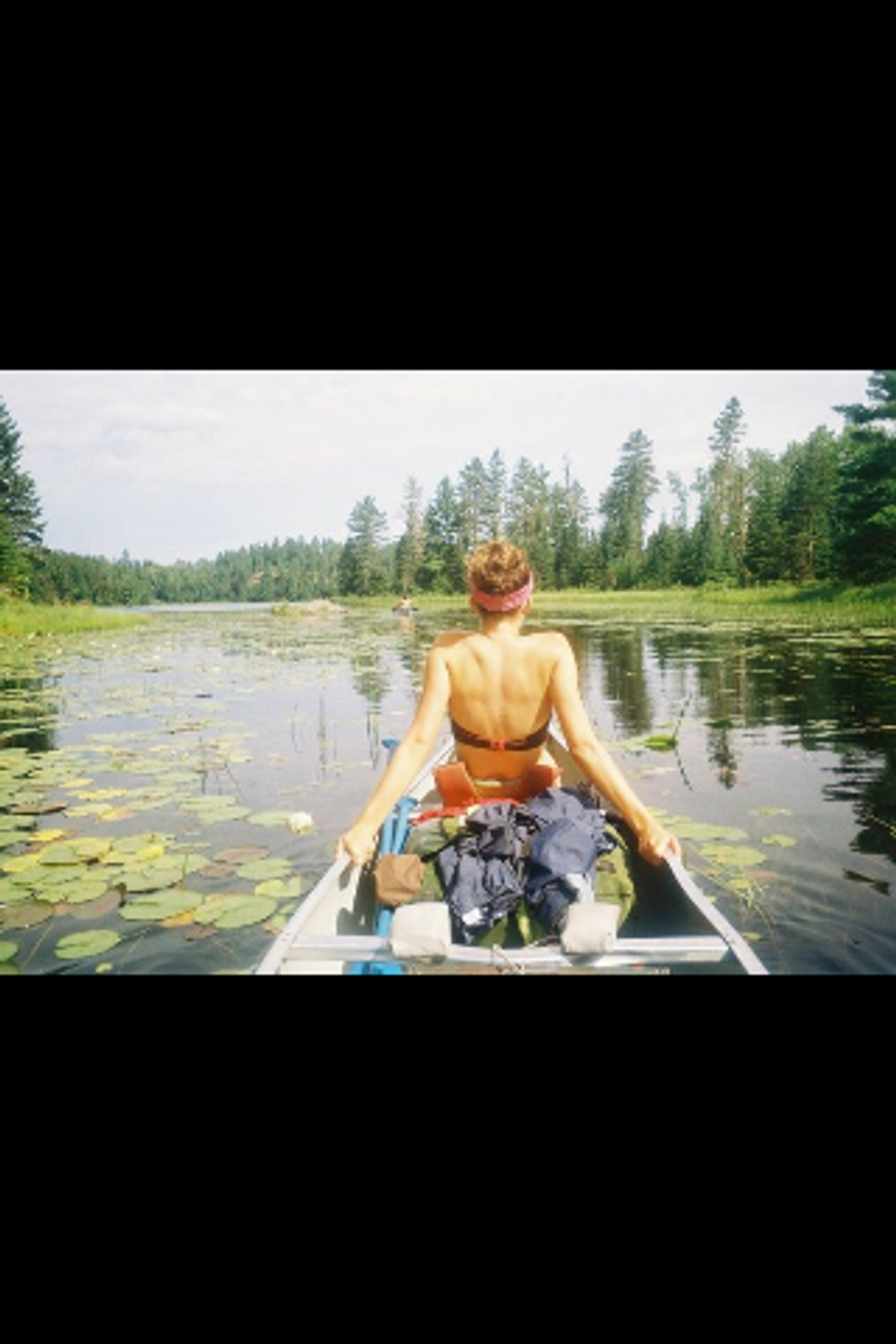Camping is a common hobby among young people. We love the idea of getting out in nature with animals and be able to unplug for a while. I love a good camping trip just as much as the next person, but after a very special experience I've gained a new love and respect for the great outdoors that most people overlook when they think of the typical camping trip.
I've never been an environmental enthusiast. I never thought about what effect I'll have on the environment if I didn't recycle my plastic water bottle, but one spontaneous decision I made in high school to go on a camping and canoeing trip in Canada changed my whole perspective on what it means to live with the environment, instead of in our environment.
My sophomore year of high school I decided to be bold and take a chance to do something that no one would expect from me. I signed up for a rare opportunity to go on a 10-day camping and canoeing trip in the heart of Canada. The whole school learned about the trip and many people thought it would be cool to go, but no one wanted to go without their friends. Even though none of my friends were interested in going I still wanted to challenge myself, so I went on the trip alone.
After weeks of preparation and careful packing I was ready to see what was in store for me. We were to take a coach bus from the suburbs of Chicago all the way to beautiful Atikokan, Ontario, with one day spent on what we called the "island" to learn how to properly paddle our canoes and use the provided camping equipment, and seven days and six nights in the pristinely preserved Quetico Provincial Park.
I was prepared to rough it on this journey, but I was not prepared learn so much about this beautiful place. The special thing about Quetico is that it is perfectly preserved. It looks exactly the same way it did during the fur trade era. Quetico has a strict motor ban over the whole park. Aircrafts cannot fly over the park, no boats with motors are allowed on the lakes, and no form of ATV or four-wheelers can be driven over land or frozen ice in the winter. Because Quetico is located at one of the highest points in Canada, no pollution from the big cities flows into the waters and lakes, so you can dip your water bottle into the lake and drink straight from it with no filtration. I have never tasted better water in my entire life.
In order to continue to keep Quetico pristine, anything that we brought into the park we took out with us. That meant all of our food, clothing, and garbage (including toilet paper). My belongings included two t-shirts, a bathing suit, a pair of socks, a pair of shorts, a pair of sweatpants, one change of underwear, a sports bra, and rain gear. That was it, for seven days. Luckily, the groups were divided by gender so that made things less uncomfortable. There were six students, one teacher, and a naturalist guide in my group. All were strangers to me at the beginning of the week, but after you spend a week relying on those eight other people to help you survive every day, you form a bond and mutual respect that you’ve never known before.
While in the park, we would paddle about eight to 12 miles a day, stopping for lunch and, sometimes, a quick swim. Depending on the route, we would have to portage all of our belonging one to four times a day. While portaging you have to make multiple trips carrying canoes, back packs, and anything else you brought with you, on your back for hundreds of meters over rough terrain to get to the other lakes. This was by far the most challenging part, but there was no feeling quite like completing a long portage and seeing the view of the water and rocky beach of the next lake. At the end of the day, we set up camp, cooked dinner, maybe fish, and when the sun went down we gazed at the most beautiful view of the stars I've ever seen. Some groups even had the luck of being able to see the aurora borealis, the northern lights.
Our naturalist guide showed us rock formations that had been there for thousands of years, and cave drawings that were made by the original Voyageurs. She showed us animal tracks and the best fishing spots on the lakes. We also learned about what plants and vegetation the Voyageurs survived on for months while transporting furs across the lakes. We learned many lessons on the importance of protection and how to preserve the nature around us, as well as the environment in our hometowns.
After the seven days spent in Quetico, I’ll admit I was excited to get back to my cell phone, but I did experience a bit of reverse culture shock. There was something so liberating about living life so simply. It developed a whole new meaning far beyond what most people picture when they imagine living simply. I know now that I do have the ability to live alongside and coexist in a single environment with nature, and live the simplest way of life. Every year, after that, I returned with my high school group to Quetico to remind myself that life is not just what is buzzing on television and social media, but you can find meaning in the simplest things. And now I can say, Je suis une femme du nord.



















